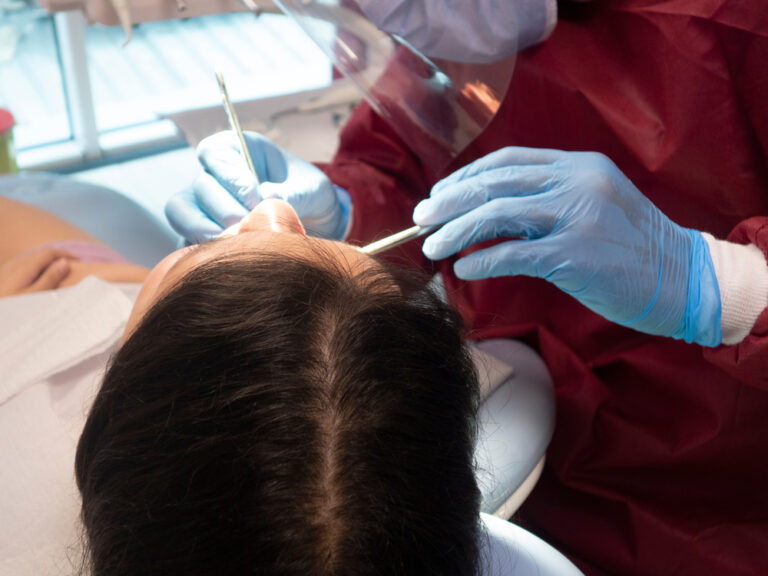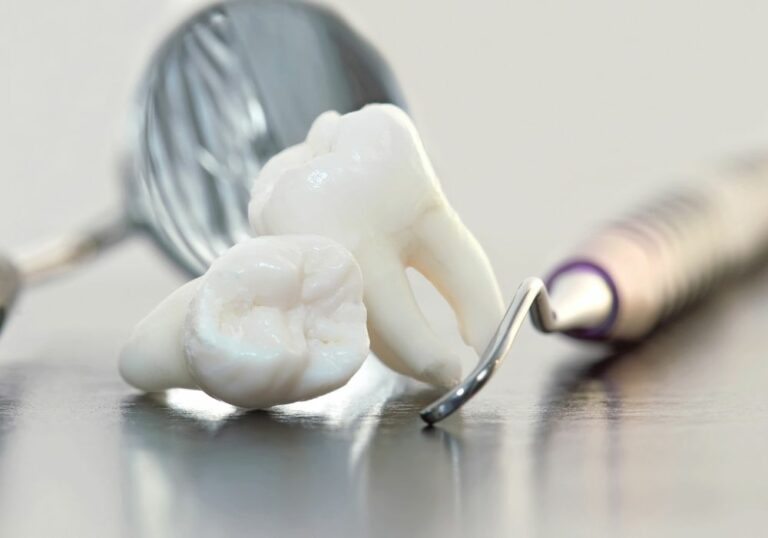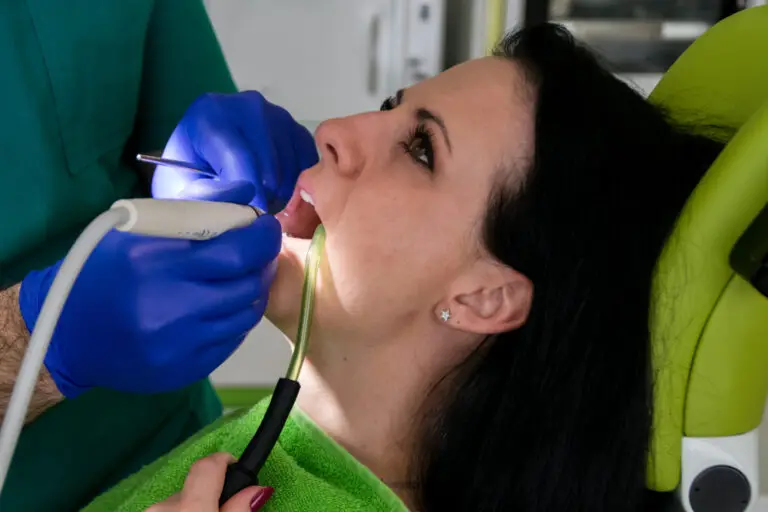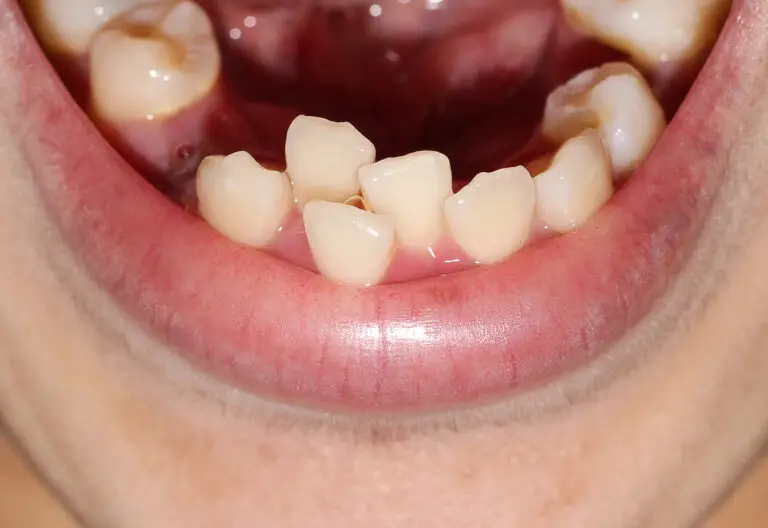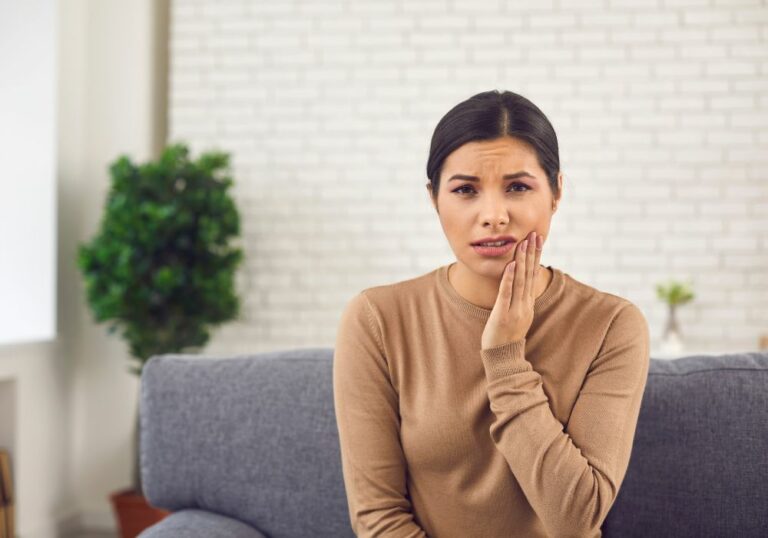Engaging in physical activity and exercise is a vital component of a healthy lifestyle. However, some people report experiencing tooth sensitivity or pain during or after exercise. This article takes an in-depth look at why exercise can cause dental pain and how to prevent and manage it.
Causes of tooth pain during or after exercise
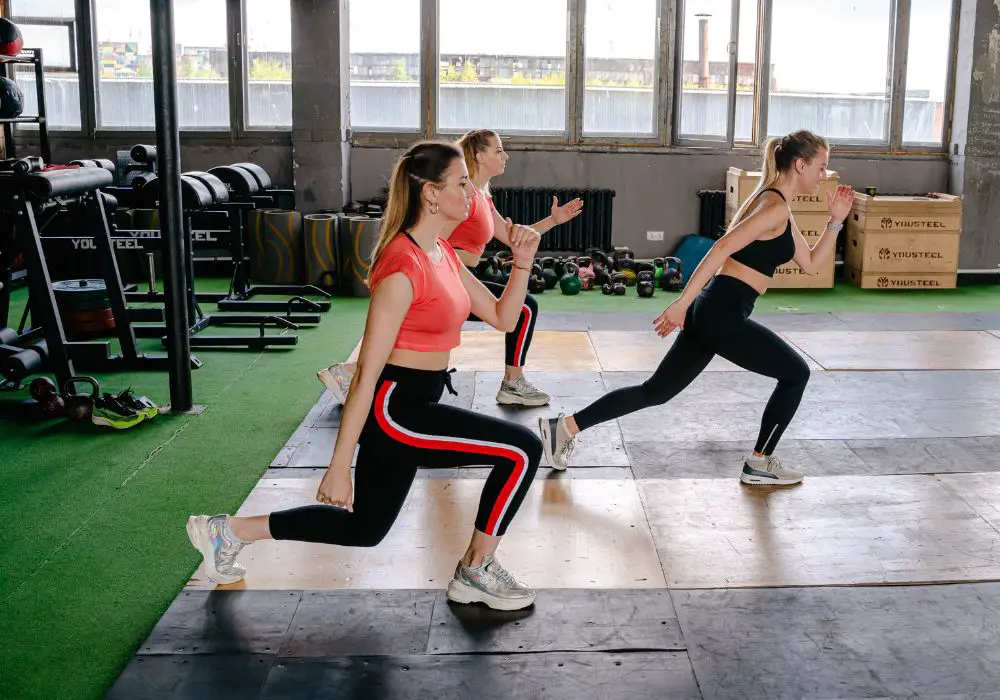
There are several theories as to why exercise may provoke tooth sensitivity or discomfort:
Dehydration
One of the most common causes of exercise-related tooth pain is dehydration. When you engage in intense or prolonged physical activity, your body loses large amounts of fluid and electrolytes through heavy sweating. This can lead to significant dehydration if these depletions are not sufficiently replaced by drinking enough water and electrolyte-containing beverages.
Dehydration leads to a marked decrease in saliva flow and production in the mouth. Saliva acts as a lubricant and helps protect and coat the teeth, but inadequate saliva leaves them vulnerable to pain-provoking stimuli. Saliva also has a neutralizing effect on the acids produced by oral bacteria from plaque on the teeth. With less saliva available during exercise, plaque bacteria are able to produce cavity-causing acids for longer periods undisturbed. The lack of saliva’s cleansing action also allows plaque and acidic byproducts to remain on the teeth rather than being washed away. This sets the stage for dental erosion, sensitivity, and decay.
Increased airflow over teeth
Vigorous exercise often requires heavy mouth breathing to meet oxygen demands, particularly during high-intensity aerobic activities. This constant airflow over the teeth serves to dry the mouth. It can worsen any existing tooth sensitivity by exposing dentin tubules. Dentin contains fluid and nerve fibers that sense pain and hot/cold stimuli. When gum recession or enamel loss occurs, the dentin tubules become open and exposed to external irritants circulating in the mouth during heavy breathing exercises.
Some individuals also clench, grind, or tense their jaw muscles during physical exertion. This applies additional biting pressures against the teeth that can increase pain sensations from any pre-existing dental issues.
Consumption of sports drinks and sugars
Athletes and exercise enthusiasts frequently consume sports drinks, energy gels and bars during prolonged endurance exercise to provide carbohydrate fuel and prevent muscle glycogen depletion. The high sugar content of these products delivers an abundant energy source for the working muscles. But these sugary supplements also have consequences for oral health.
The simple sugars like glucose, sucrose, and fructose in sports drinks, bars, and gels feed the bacteria present in dental plaque. The bacteria rapidly ferment and metabolize these sugars into acids. These organic acids bring about pronounced drops in mouth pH each time sugars are consumed, making the mouth more acidic.
With repeated and frequent exercise snacks and drinks, mouth pH may remain at dangerous lows for long periods. This fosters the demineralization and breakdown of tooth enamel – a key process in the development of dental caries and erosion. Though rinsing the mouth with water after consuming sugary items may seem to wash away residual sugars, some amount still remains in the oral cavity. This fuels the ongoing growth and acid production of plaque bacteria on the teeth well after finishing the sports supplements.
Gastroesophageal reflux
Gastroesophageal reflux disease (GERD) involves the backflow of stomach contents like gastric acid rising up into the esophagus. This can occur during exercise when increased abdominal pressure forces gastric acids upwards beyond the lower esophageal sphincter muscle. Intense physical activity is known to precipitate and worsen symptoms of acid reflux in those with GERD.
When stomach acids reflux into the esophagus and mouth, they directly bathe the teeth in corrosive fluids. Even small drops of refluxed liquid still contain highly acidic contents like hydrochloric acid, pepsin, and bile salts. This acid bath readily erodes and damages tooth enamel and underlying dentin. With repeated reflux episodes during heavy exercise, the cumulative effects of corrosive acids can provoke tooth sensitivity and pain. Without treatment, dental erosion and decay can result.
Dental conditions aggravated by exercise
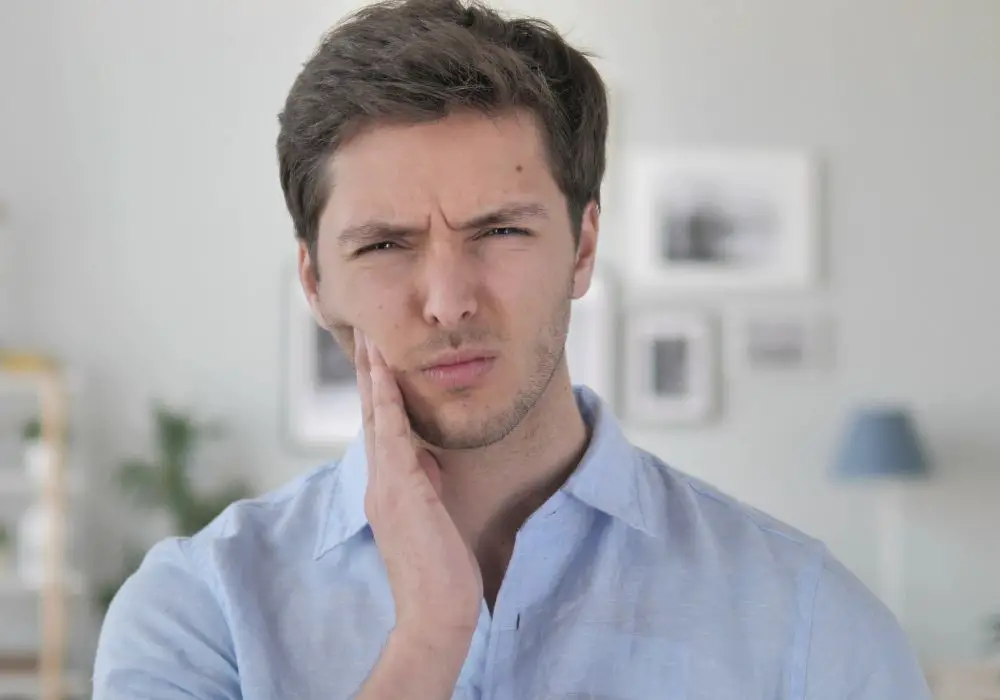
Certain pre-existing dental issues may flare up and cause worsening pain when a bout of exercise stresses the teeth and oral cavity:
Dental caries
Tooth decay in the form of dental caries or cavities results when demineralization of enamel occurs from prolonged acidic conditions in the mouth. Caries develop because acidogenic plaque bacteria metabolize dietary sugars and release enamel-eroding acids as byproducts. The demineralized enamel is weaker and more porous, allowing rapid diffusion of pain-provoking stimuli deep into the tooth.
During exercise, worsening dry mouth and inadequate saliva flow allow plaque acids to linger on the teeth longer. Increasedbreathing directly over affected areas also exacerbates sensitivity from caries. Even mild stimuli may trigger sharp pain over caries lesions when saliva flow cannot properly bathe and shield exposed dentin.
Dentin hypersensitivity
This common condition causes short, sharp dental pain in response to hot, cold, acidic, sweet, or osmotic stimuli. It occurs because of gum recession and loss of protective enamel covering the crown. This exposes the underlying dentin layer containing fluid-filled tubules with sensitive nerve fibers. Open tubules permit external stimuli to reach the innervated dentin and pulp tissue, provoking pain signals.
Heavy mouth breathing and dehydration during exercise aggravate dentin hypersensitivity by drying the tubules and allowing rapid stimulus diffusion. Without adequate saliva to moisturize and insulate the dentin tubules, they become more sensitive to irritants entering during breathing. Sudden intake of cold water can also trigger spikes in pain intensity when dentin is exposed.
Cracked and broken teeth
Cracks and fractures in teeth commonly result from chewing hard foods, trauma, grinding, and clenching. They allow oral fluids to seep deep inside the tooth structure through microscopic gaps. During exercise, increased repetitive jaw muscle activity and forces applied while clenching can drive fluid deeper into cracked teeth. This fluid expansion activates pressure-sensitive nerve fibers in the pulpal tissues, causing acute pain.
Dental erosion
Erosion involves the pathological, chronic loss of dental hard tissues like enamel and dentin due to acidic dissolution. Frequent contact with acidic foods, gastric acids from reflux and purging, and acidic beverages slowly dissolve away the mineral content of enamel over time. As layers of enamel erode, the softer underlying dentin becomes uncovered. Since dentin lacks enamel’s mineral protection, it rapidly erodes once exposed. This results in a more sensitive, pain-prone tooth surface during exercise.
Recent dental treatments
Following dental procedures like professional cleanings, fillings, tooth extractions, crown placement, and oral surgery, teeth often exhibit short-term sensitivity as they recover. Lingering inflammation around affected teeth lowers their pain threshold. And mechanical trauma from drilling and manipulating the teeth during treatment also provokes sensitivity that fades over days to weeks. However, engaging in intense exercise too soon after dental work can worsen inflammatory pain and delay healing.
Preventing and minimizing exercise-related tooth pain
There are several effective strategies you can implement to lower your risk of experiencing dental pain and sensitivity during periods of intense training and physical activity:
Stay hydrated
Preventing dehydration is key to avoiding exercise-induced dental pain. Aim to drink 16-20 oz of water 2-3 hours before your workout or competition. Continue replenishing fluids at regular intervals during the activity. Water is ideal, but sports drinks can also help replace fluids and electrolytes lost while sweating heavily.
After finishing your training session, drink plenty of water to rehydrate and stimulate saliva production. Swishing water around your mouth helps clear sugars and acids off your teeth. You can also suck on ice chips to numb and moisturize your mouth.
Chew sugar-free gum
Chewing gum during exercise enhances salivary flow in your mouth. The increased lubrication and pH buffering effects help protect and remineralize your teeth. Look for sugar-free gum with xylitol, which has antibacterial effects to reduce plaque. Mint-flavored gum also provides a refreshing, cooling sensation.
Rinse with fluoride
Using a fluoride antibacterial mouthwash right before exercise will help fortify your tooth enamel against acid attacks. The fluoride integrates into enamel crystals to strengthen areas prone to decay and sensitivity. Rinsing again with fluoride after exercise remineralizes any demineralized spots.
Your dentist can also apply concentrated fluoride varnish treatments periodically to protect sensitive areas. High-concentration fluoride toothpastes used daily boost enamel strength as well.
Monitor carbohydrate intake
When consuming sports drinks and carb-dense foods during exercise, moderation is key. Follow product guidelines for amount and frequency to avoid prolonged acidic conditions in your mouth. Rinse with water after consumption to clear sugars off your teeth. Limit acidic supplements like citrus flavored energy gels.
Wear a mouthguard
Those who clench their jaws intensely during workouts should wear a custom mouthguard. These prevent excessive grinding pressures that damage teeth and exacerbate sensitivity. They also keep teeth separated to allow saliva circulation. Ask your dentist to fit you with an athletic mouthguard.
Treat acid reflux
For those with frequent acid reflux issues, medications or dietary changes can help control GERD symptoms. Avoiding heavy meals, caffeine, alcohol, and trigger foods before vigorous exercise may also help. Don’t lie down immediately after training, and allow 2-3 hours for gastric emptying after eating. This minimizes risk of reflux episodes during activities.
Allow dental work to heal
When recovering from dental treatments, avoid intense training and competition for at least 24 hours. This gives teeth time to start healing before being subjected to harsh stresses that could worsen pain and delay your return to normal training. Follow all recovery instructions from your dentist.
What to do when exercise causes tooth pain
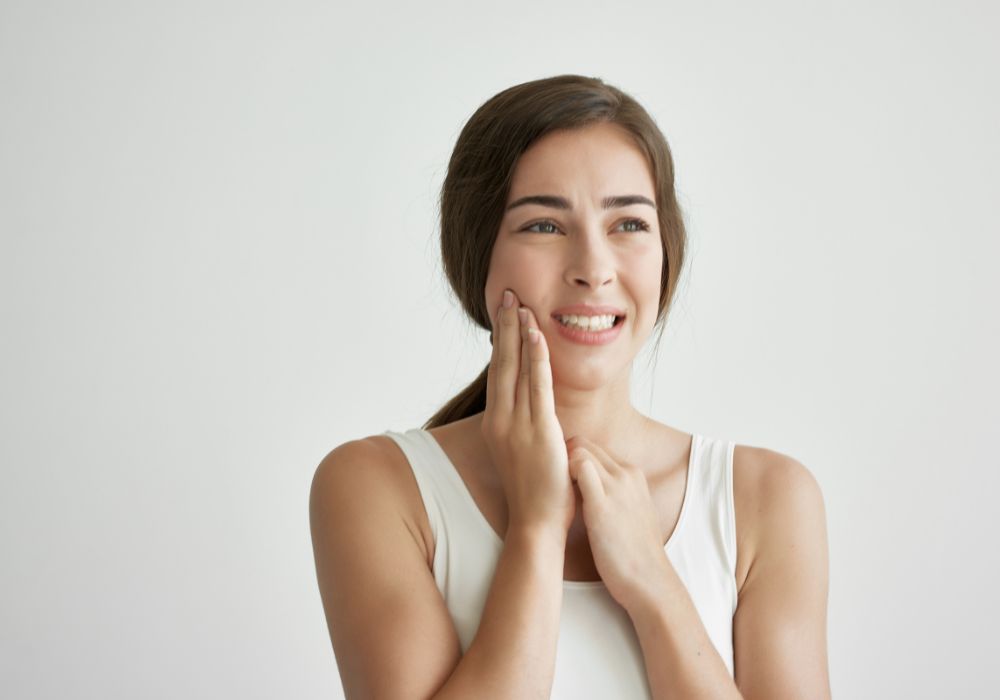
If you develop tooth sensitivity or pain during or after exercise:
- Stop the activity and rest until symptoms subside. Continuing to train through pain can worsen dental damage.
- Take over-the-counter pain relievers like ibuprofen or acetaminophen to temporarily alleviate discomfort after exercising.
- Rinse your mouth with cold water, which constricts blood vessels in the tooth and decreases fluid buildup in the pulp that causes pain.
- Apply desensitizing creams or gels containing 5% potassium nitrate or 8% arginine. These work by sealing and numbing exposed dentin tubules.
- Use a desensitizing toothpaste daily. These contain compounds like stannous fluoride, arginine, or strontium chloride to occlude dentin tubules.
- Wear a desensitizing mouthguard during workouts to shield teeth from stimuli. These contain resin barriers that block fluid movement in the teeth.
- See your dentist promptly to diagnose and properly treat the source of your symptoms through dental imaging, bite analysis, and sensitivity testing. Treatments like fluoride, sealants, fillings, or gum grafts can provide lasting relief. Custom mouthguards and night guards may also help prevent recurrences during exercise.
Preventing exercise-related dental problems
You can take proactive steps to promote oral health and avoid dental pain triggered by your workouts:
- Brush and floss thoroughly daily – Regular plaque removal limits the bacteria that drive enamel demineralization and tooth decay. Use proper technique and spend at least 2 minutes brushing.
- Get routine dental cleanings/exams – Professional cleanings every 6 months reduce plaque buildup and tartar that irritate teeth. Your dentist can check for early signs of decay, cracks, wear, and other problems.
- Use fluoride toothpaste and rinses – Fluoride incorporated into enamel crystals boosts resistance to demineralization from plaque acids. Brush with fluoride toothpaste before exercise and rinse with fluoride mouthwashes after.
- Drink mostly water – Stay hydrated but avoid frequent consumption of acidic sports drinks and juices that erode enamel over time.
- Limit acidic, sugary foods and snacks – Reducing dietary acids and sugars minimizes the substrate that bacteria use to produce plaque acids.
- Treat acid reflux if present – Controlling GERD prevents gastric acid damage to your teeth from reflux episodes during training.
- Get night guards if you grind teeth – Prevent fracture and wear from unconscious grinding and clenching while you sleep. Night guards protect your investment in costly dental work like implants, crowns, and veneers.
- Strengthen enamel with calcium – Your diet and possibly supplements should provide adequate calcium and vitamin D for building strong enamel resistant to decay and acids.
With proper prevention strategies and prompt treatment when dental pain does occur, you can continue to maintain your fitness routine and oral health simultaneously. Pay attention to what your mouth is telling you and see your dentist at the first sign of tooth troubles.
Frequently Asked Questions
Is it normal for teeth to hurt during or after a vigorous workout?
It is fairly common to experience minor tooth sensitivity or low-grade dental pain during or after intense exercise. However, frequent or severe discomfort indicates an underlying dental problem needing evaluation. Contact your dentist if pain persists.
Will intense physical activity damage my teeth?
Extreme endurance training and sports can put greater stress on teeth. Dehydration, jaw clenching, acidic sports drinks, and equipment impact during activities raise risks for dental complications like erosion, fractures, and wear over time. Using preventive mouthguards and other protection helps avoid exercise-related dental damage.
Should I avoid intense workouts if I have sensitive teeth?
You don’t necessarily need to avoid exercise with sensitive teeth. But take preventive steps like drinking plenty of water, using fluoride rinses, chewing xylitol gum, and wearing a mouthguard. See your dentist to identify the source of sensitivity and get it properly treated before resuming vigorous training.
Why do my fillings hurt when I exercise strenuously?
Dental fillings can provoke inflammation and nerve irritation in the tooth pulp. During intense activity, increased fluid shifts in the tooth and jaw clenching put pressure on irritating fillings. This is sensed as pain by the nerves inside the tooth structure. Consult your dentist to adjust or replace problematic fillings providing pain relief.
Is it advisable to exercise within 24 hours after a dental procedure?
It’s recommended to avoid intense physical activity for at least 24 hours after dental treatments. This allows proper healing to begin and avoids disrupting any blood clots, sutures, or vulnerable tooth surfaces. Follow all of your dentist’s post-procedure instructions carefully before hitting the gym again.

